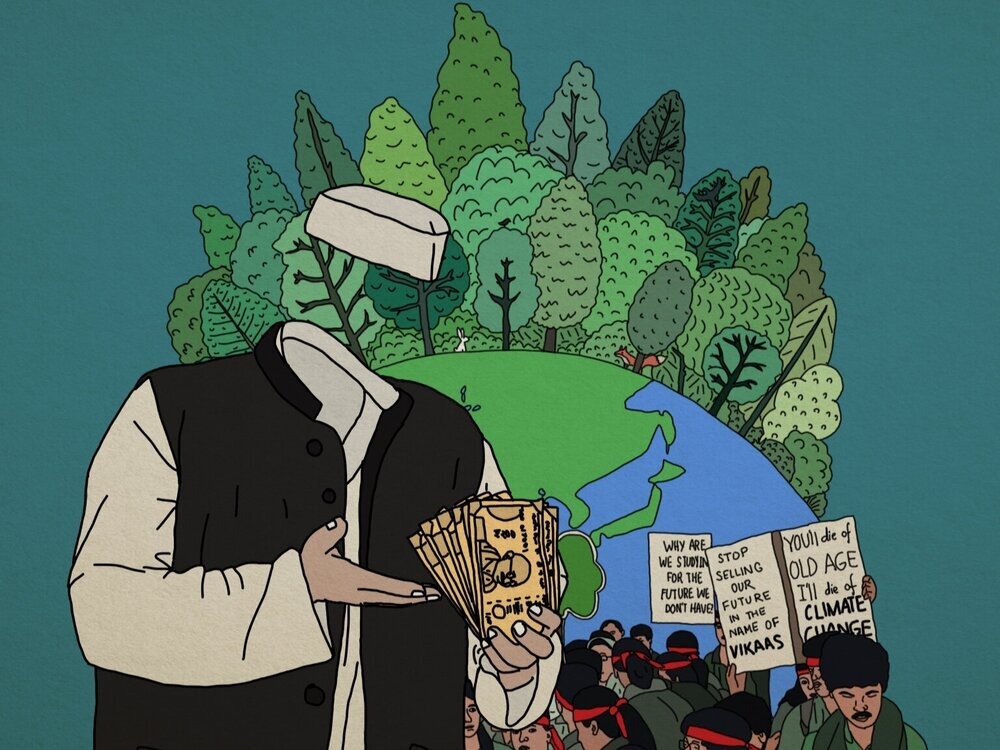ISLAMABAD: Pakistan needs to adopt a green growth strategy for economic development and prevention of environmental degradation and biodiversity loss along with the unsustainable use of natural resources, WealthPK reports.
Food can be produced in a way that works with nature, not against it, but right now, it is the biggest threat on the land as well as in rivers and oceans. In order to reach an environmentally sustainable growth model, it is necessary to maximise the chances of exploiting cleaner growth sources.
Muhammad Azeem Tariq, an expert at the National Agriculture Research Centre, told WealthPK that the growth of agricultural productivity played a major role in the uplift of the economy in developing countries. However, he hastened to add that implementing a strategy for green growth in agriculture was quite difficult.
“Nature-positive agriculture is a holistic approach that emphasises the interconnectedness of farming systems and the whole ecological system,” he said.
The expert said that nature-positive food production kept soil healthy and water flowing, besides helping in storing carbon and providing a home to a range of biodiversity, both above and below the ground.
“Unlike other sectors, agriculture generates both negative and positive environmental externalities and contributes to the supply of public goods. The anticipated large expansion in the demand for its products can lead to an increase in the negative contribution of agriculture to global environmental quality, such as loss of biodiversity through the clearing of grassland and forests, unsustainable pressure on increasingly scarce water supplies and increased water pollution by agro-chemicals and animal waste,” he said.
Azeem Tariq said that about half of the habitable land was used for agriculture, resulting in the world’s single major source of greenhouse gases and ecosystem destruction.
“Food systems not only depend on nature but also exert significant pressures on it. There is no doubt that food systems, including all other stages between farm and fork, are accountable for 21% to 37% of worldwide greenhouse gas emissions. Several other environmental concerns are also associated with food systems, including deforestation, overfishing, water pollution and a wide range of other problems,” he said.
He said that greater food production could come from three sources with unambiguously different environmental implications, including greater use of land, greater use of other inputs and greater efficiency in how those inputs were used.
Azeem Tariq said that most of the increase in food production came from increased agricultural land use, as growing populations expanded the global area under crops and pastures for grazing animals. He said that the phenomenon led to a large-scale loss of forests and other natural landscapes.
“These three ways of expanding food production, greater land use, greater use of other inputs and greater efficiency, have very different effects on the environment. The expansion of agricultural land is associated with important greenhouse gas emissions, threats to biodiversity and loss of soil carbon,” he said.
The expert said that increased use of inputs was associated with its own set of environmental problems. The widespread use of synthetic nitrogen fertiliser not only contributes to greenhouse gas emissions but can also cause severe damage to aquatic ecosystems. However, in terms of the use of inputs and their impacts, context matters. Some regions of the world face more water scarcity than others. Even in the countries having an abundance of water, there can be “local hotspots” with water scarcity risks.
In contrast with expanding land and input use, efficiency gains make it possible to produce more food without increasing the environmental effects of food systems.
“In the absence of significant soil conservation measures such as decarbonisation, erosion, and chemical pollution, we will not only suffer nutritional deterioration and loss of vital trace minerals, but may also run out of arable land,” said Azeem Tariq.
Sustainability is closely intertwined with economic, social and environmental components for truly sustainable agriculture. Poverty often forces farmers to take advantage of natural resources like soil fertility, even though environmental degradation may affect their livelihoods in the long run. “The policies, which integrate social, environmental and economic interests, can promote more sustainable agricultural systems,” he told WealthPK.






